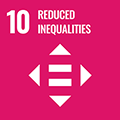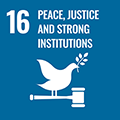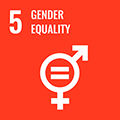FROM CONFLICT TO ACCOUNTABILITY: SHAPING GLOBAL AMNESTY POLICY
Queen’s University Belfast is a global leader in transitional justice research, particularly on the legal and political use of amnesties during and after conflict. Through world-class legal scholarship, policy engagement, and the development of data-driven tools, Queen’s has shaped understandings of how amnesty laws are designed and applied in complex transitional contexts. This work has helped ensure that peace processes promote accountability, human rights, and inclusive reconciliation.
Research Challenge
BALANCING PEACE AND JUSTICE: THE GLOBAL DILEMMA OF AMNESTY LAWS
Amnesties are frequently used in post-conflict and authoritarian transition contexts to support peace negotiations and reintegration. Yet they also raise concerns about impunity—particularly when they exempt those responsible for war crimes or systemic human rights abuses. International law remains ambiguous on their permissibility, and policymakers often struggle to craft amnesty provisions that both foster peace and uphold justice.
Queen’s University Belfast identified the urgent need for rigorous, comparative research and practical guidance to help governments, negotiators, and civil society actors navigate these legal and ethical complexities. The challenge was to bring clarity, legitimacy, and accountability to one of the most politically fraught tools in transitional justice.
Our Approach
LEGAL INNOVATION AND GLOBAL REACH: HOW QUEEN’S IS REFRAMING AMNESTY POLICY
At the heart of this work is Queen’s School of Law and the Senator George J. Mitchell Institute for Global Peace, Security and Justice. Professor Louise Mallinder, a Chair in Law and Fellow of the Academy of Social Sciences and the Royal Irish Academy, has led an internationally recognised research programme examining how amnesty laws intersect with peacebuilding, accountability, and international law.
Key outputs include:
- The Amnesties, Conflict and Peace Agreements (ACPA) Database, developed at Queen’s and hosted in collaboration with the University of Edinburgh. This open-access resource tracks over 300 amnesties globally, offering crucial insights into their legal design and compliance with international standards.
- The Belfast Guidelines on Amnesty and Accountability, co-developed by Mallinder, the guidelines provide a globally adopted framework for determining when and how amnesties may be legally and ethically applied. They have been influential in peace negotiations as well as influencing how truth commissions have implemented conditional amnesties.
- Comparative research on conflict and post-conflict societies including Northern Ireland, Spain, Colombia, and Ukraine, exploring how local narratives, legal cultures, and political realities shape transitional justice.
Queen’s researchers have supported national dialogues, peace negotiations, and legal reforms by providing tailored expertise and comparative insights, making Queen’s a trusted partner for both academic and policy communities.
“At Queen’s, our research aims to support inclusive and lawful approaches to peacebuilding. By analysing how amnesties are used around the world, we help policymakers and civil society design responses to conflict that promote justice while recognising political realities.”
- Professor Louise Mallinder, Queen’s University Belfast
What impact did it make?
SHAPING POLICY FROM BELFAST TO BOGOTÁ: LASTING INFLUENCE ON PEACE AND JUSTICE
- International Organisations: Mallinder’s findings have informed the work of the United Nations, the Inter-American Court of Human Rights, and the International Criminal Court.
- National Policy Engagement: In Colombia, the Special Jurisdiction for Peace used Queen’s expertise to assess the legal boundaries of amnesties. In Spain, Mallinder’s research on amnesties for political crimes, commissioned in the context of the amnesty laws related to the Catalan independence movement, was launched in national Parliament
- Ukraine: Since 2019, Queen’s research has helped shape Ukrainian transitional justice dialogues and peacebuilding policy, especially in response to Russia’s invasions.
- Northern Ireland: Research on ‘rights-based reconciliation’ has underpinned policy debate and legal evidence on the UK’s legacy legislation, with Mallinder and Queen’s colleague, Anna Bryson, contributing to parliamentary inquiries and advocacy with the Committee on the Administration of Justice (CAJ).
- Global Civil Society: NGOs and transitional justice organisations use research tools produced by Queen’s researchers —particularly the ACPA database and Belfast Guidelines—to challenge unlawful amnesties and design lawful, victim-sensitive frameworks
- Queen’s is also a lead institution in the UK Foreign, Commonwealth & Development Office–funded PeaceRep consortium, through which it continues to influence peace negotiations worldwide.
Our impact
Impact related to the UN Sustainable Development Goals
Learn more about Queen’s University’s commitment to nurturing a culture of sustainability and achieving the Sustainable Development Goals (SDGs) through research and education.










